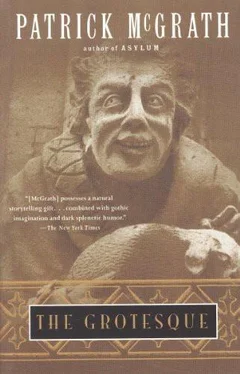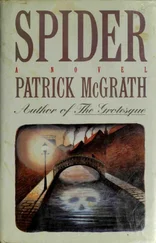And so Doris drinks and chats, and I have come to know well the successive phases through which she passes on the road to oblivion. Doris is one of those in whom the first drink of the day can arouse a sense of consummate fulfillment unrivaled in the spectrum of human gratification. She is aware, too, that it is only in the satisfaction of an illicit desire that pleasure in its fullest measure can be known. So she fills her glass with wine, almost to the top, and there is, I can tell, in its sweet odor, and its ruby hue, a feast for the woman’s sensorium, even before she tastes it. She lifts the brimming glass to her eager, parted lips and again pauses, prolonging for one delicious instant more the anticipation of drinking. There is no sound from the hall or staircase; the smell of the wine, slightly musky, is strong in her nostrils. She tips the glass. She swallows, in one long, ecstatic draft, half its contents and then, slumping in her chair with a deep sigh, picks up the bottle and gazes at it, taking a sort of supplementary pleasure in its shape and its label, the outward signs of the essence within. She finishes that first glass in two further movements, and sits a moment permitting the glow to mount from her belly to her brain. And then, as the familiar misty warmth begins to kindle, she will compliment me on my cellar.
I wonder, has it ever occurred to you that a certain analogy can be drawn between drinking and suicide? It’s very apparent to me, who can now partake of neither form of release and am, instead, literally incarcerated within my own flesh. But what the drinker would doubtless spurn is the sudden death, the sudden blessed cessation of experience, and liberation from the self, that the suicide craves. Sudden death is anathema to the drinker, for the approach to the void must be gradual, it must be attenuated. And so I observe Doris tantalizing herself, dallying over the first three-quarters of the first bottle, even, at times, consuming a slice of bread and a raw onion to further defer, to cunctate (lovely word, Latin cunctari, to linger) the delicious onset and progress of her drunkenness. “Sseady now, Doris old girl,” she murmurs, as she rises clumsily to her feet to drain and refill my glass—she drinks for both of us—and bumps against the table as she does so, spilling red wine onto the old scrubbed boards. The back door is still open, and the sounds and smells of the early evening come drifting in, birdsong, manure, the bark of a dog on a distant farm, and Doris, one ear cocked for Fledge coming down the passage, sits drinking with me, talking of the years in Kenya, then gazing off with filmed eyes into unseen stadiums of memory. What does she think of, I wonder at such times, though I know that her mind, by this stage, strictly speaking is not thinking but instead drifting in the vague, associative, oceanic way that the mind does when it sloshes off beyond language and surrenders to the booze. I am no stranger to it myself.
It grows dark outside, and the putt-putt-putt of a tractor comes from the road beyond the gates of Crook. Doris has opened her second bottle, and her oceanic consciousness is becoming befogged, benumbed, and her eyes have acquired a glazed fixity not unlike my own. Strands of silver hair come drifting loose from her bun, and though she is slumped untidily in the chair a certain mechanical precision is evident in her gestures, the lifting of the glass has come to resemble the operation of an automaton.
At last she rises from her chair and moves with slow, careful steps to the back door, which she closes and latches against the night. No lamp has yet been lit; moonlight spreads a weak and silvery glow across the kitchen, and beyond its cold fingers the shadows thicken, deepen, clot. Doris stiffly resumes her chair and gazes across the table at me. What must I look like now, I wonder —rigid and upright, with the moonlight gleaming from the great hook of my nose, my eyes in their hollows mere pinpricks of brightness in the gloom of the evening? A grotesque; a grotesque, locked in the grotto of his own bones. “Sir Hugo,” murmurs Doris, “oh, Sir Hugo.” She lays her head on her arms and begins to sob softly in the darkness, and I gaze on, unmoving, but not unmoved, across her quietly heaving shoulders and through the kitchen window to the moonlit yard beyond. It is then that I would wish to weep, too, but cannot—not because the ability to weep is blocked, as everything else is blocked, but because I’m much too old to learn to weep in the presence of another person. And this is another of those ironies, those inversions, of the vegetable state. It is long training, you see, that prevents me from weeping in public, with the result that the only means I have of communicating to the world that I am mentally alive and that I can feel—I cannot employ. I cannot employ it because the habit of self-restraint, maintained over a lifetime, is impossible to break. So, when not in the private darkness of my grotto, I preserve the dry-eyed, manly fortitude—of a fossil!
♦
How vividly it all comes back to me, as I sit in the darkened kitchen and listen to Doris weeping herself to sleep. For as she weeps I remember the night—it was just after the first snow—that I compromised her, that I imposed my long-dormant sex instincts upon her; and I remember, too, the disgust I felt at the shabbiness, the vulgarity, and the intemperance of my behavior.
It happened during Harriet’s Christmas party. She does this every year, throws a party for the local gentry; it’s a thing we have to do, she says, one of the “proprieties.” She extracts from me a promise to be welcoming and normal, and I invariably station myself by the Christmas tree and make sure the scotches keep coming at a steady clip. There was an awful lot of babble this year, and I’d managed to put up with Freddy Hough’s so-called conversation for about ten minutes when it suddenly occurred to me to wonder where Cleo was (this was the day she’d come back from Oxford). I realized that I’d missed the girl, so I promptly abandoned Freddy and set off to the kitchen to find her. She was not there; but I did find Doris, loading a tray with cocktail sausages.
The kitchen was hot, Doris was working hard, and her face was damp with perspiration. Strands of hair clung wetly to her brow. She wore a freshly laundered black uniform with white cuffs, collar, and apron, and it fitted her narrow frame quite snugly. I sat down and, lighting a cigar, watched with some pleasure as she bustled between oven and table. “I bet you’d like a drink, Mrs. Fledge,” I said. The noise of the party drifted down from the front of the house, muted and distant.
“I would dearly love a drink, Sir Hugo,” she said, barely pausing in her work, “but there’s the sausages to be seen to, and then I’ve to open more sardines.”
“Let me help,” I said. “I used to be an expert at opening sardines. In Africa,” I added.
This time she stopped, and stood pushing the hair out of her eyes. “Oh no, Sir Hugo,” she said. “I couldn’t do that.”
“Nonsense,” I said. “I intend to abolish the division of labor; it’s inherently unjust. Give me the sardines, Mrs. Fledge!”
Sardine tins, as you know, are opened with a sort of key with a slit in it, into which one inserts a small metal tongue that protrudes from the edge of the tin; by turning the key, one peels away the lid of the tin and reveals the oily treasures within. If you break off the little tongue, however, the task becomes much more complicated. I broke off the little tongue, and in the process cut my finger. “Damn!” I cried.
Doris came over with a worried frown. I was sitting at the table. She lifted my hand and peered at the tiny cut, from which had swelled a single drop of blood. She carried a faint odor of cocktail sausages, mingled with sweat. Like a fool I slipped my hand up the inside of her leg. I felt the roughness of her nylons. “No, Sir Hugo,” she hissed, her eyes wide with horror as she backed away. I went after her—can you believe this of me?—I went after her. I knew that Fledge was certain to appear in the kitchen at any moment, and still I did it. “Sir Hugo!” hissed Doris, retreating rapidly across the kitchen towards the stove. Doubtless I presented a bizarre and frightening spectacle, wild-eyed from whisky, bleeding from the finger, and manifestly out of control. I trapped her in the corner. Doris is a head taller than me, and the kiss I attempted to plant on her mouth missed completely, my chin barely grazing her shoulder. But I did get a hand on one of her little breasts, so audaciously pointy in that tight black uniform. And then it happened, precisely what I’d known would happen—a loud, bogus cough from the doorway, and there stood Fledge, clutching an empty silver tray and glaring at me with what, for him, was fury. Doris scampered out of the corner and, sniffing once or twice, and with lowered eyes, set about loading the empty tray with sausages. I ran a hand through my hair; it was all smeared with blood, I noticed, as was Doris’s apron. “Ha!” I said jauntily. Then: “Well!” Then, mustering my dignity, I sauntered across the kitchen, buttoning my dinner jacket and straightening my bow tie. “Excuse me,” I said, eyeing the man, and cleared my throat rather noisily. For a moment Fledge did not move; then he stepped aside from the door, glancing sharply at my blood-smeared fingers, and I made my way back to the party.
Читать дальше












